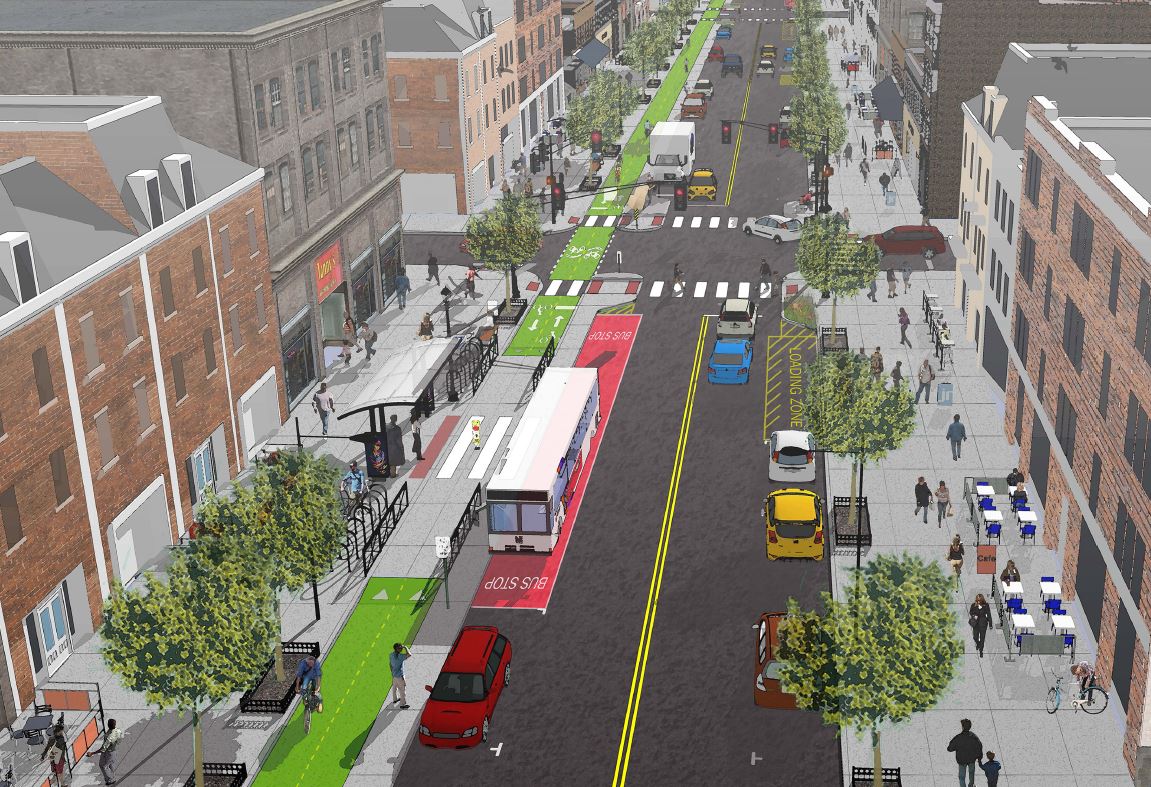New Jersey Future Blog
New Legislation Changes the Smart Growth Playing Field
September 18th, 2013 by Chris Sturm
Initiatives affect economic incentives, redevelopment tools
 Development and redevelopment efforts face new opportunities and challenges, thanks to legislation passed this spring. In addition to the Cluster Development Bill, two bills supported by New Jersey Future have been signed into law: the Economic Opportunity Act, and the so-called “noncondemnation redevelopment” bill.
Development and redevelopment efforts face new opportunities and challenges, thanks to legislation passed this spring. In addition to the Cluster Development Bill, two bills supported by New Jersey Future have been signed into law: the Economic Opportunity Act, and the so-called “noncondemnation redevelopment” bill.
The Economic Opportunity Act updates the state’s massive incentive programs for job growth and development. The change of greatest interest to New Jersey Future is a complex new incentive structure that rewards certain projects over others, depending on location, industry, and other factors. In addition, the act merges the five current programs into two streamlined programs, Grow New Jersey and the Economic and Redevelopment Growth Grant (ERGG) program. And it gives smaller firms access to incentives by lowering thresholds for investment and jobs.
New Jersey Future supported the bill because it reflects our advocacy position to prioritize projects in locations key to the state’s long-term prosperity, including large cities, transit areas, and distressed municipalities. “The new programs will provide relatively large incentives to invest in priority places throughout the state,” said Executive Director Peter Kasabach. “The incentive program also supports a growing and demand-driven development trend to redevelop areas that are walkable and transit-oriented.”
While some of the largest incentives are reserved for these smart-growth locations, the bill did expand state subsidies available to projects in rural and environmentally sensitive areas that lack robust infrastructure, an inconsistency in state policy and counter to state planning efforts.
New Jersey Future will monitor the impact of the revised Grow NJ and ERGG programs, looking for success stories in traditional smart-growth areas, while keeping an eye out for signs of new investments in sprawl development. We applaud the legislation’s reliance on the 2001 State Development and Redevelopment Plan to identify locations for growth, but note that a comprehensive update for the plan is long overdue.
Amendments to the Local Redevelopment and Housing Law create a new tool for municipalities seeking to undertake redevelopment in a way that avoids concerns about eminent domain. The bill authorizes municipalities to designate a “non-condemnation redevelopment area” where they may utilize all of the existing powers associated with a designated redevelopment area, including tax exemptions and abatements, but not the acquisition of private property through condemnation. Only if municipalities designate a “condemnation redevelopment area” may they utilize eminent domain under the new law. The bill also codifies protections set forth in recent case law, notably the Gallenthin v. Paulsboro decision regarding one of the criteria for designating a redevelopment area and the Harrison Redevelopment Agency v. DeRose decision regarding public notice.
New Jersey Future supported this legislation, because redevelopment is perhaps the most important smart-growth strategy in our highly-developed state. Too often local officials avoid redevelopment, fearing a community backlash associated with eminent domain, regardless of whether or not they intend to use it. By making it easier for local leaders to build public support for responsible redevelopment, the law should facilitate reinvestment in distressed and underutilized properties so that they can be transformed to advance community goals.
















